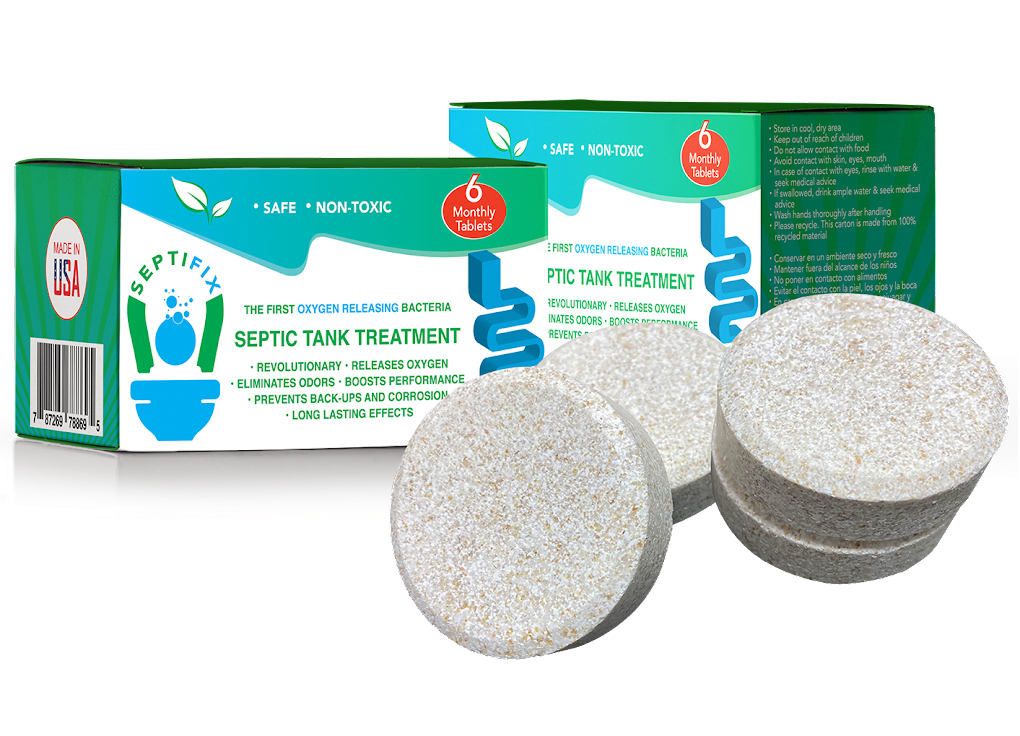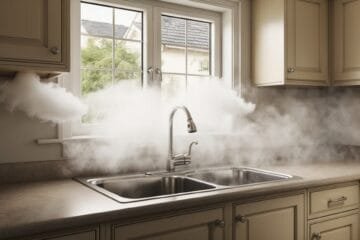Septic tank maintenance is important to keep your system running smoothly and prevent costly problems in the future. Here are some things you can do to maintain your septic tank:
Pump your septic tank regularly.
The frequency of pumping will depend on the size of your tank and the number of people living in your household. However, a good rule of thumb is to have your tank pumped every 3-5 years.
Inspect your septic system for leaks.
You can do this by looking for signs of sewage backup in your yard, such as pooling water, lush green grass, or strong sewage smells. If you see any of these signs, contact a septic professional immediately.
Clearly mark off and maintain your leach field.
Your leach field is the area of your yard where the wastewater from your septic tank is treated and filtered. It is important to keep this area clear of trees, shrubs, and other vegetation. You should also avoid driving or parking on your leach field.

SEPTIFIX will save you hundreds, if not thousands of dollars each year, because your septic system will run smoothly and you won’t have to worry about calling the pumpers or a plumber for a fix!
Click here to save up to 50%
Limit water usage and household waste.
The less water you use and the less waste you produce, the easier it will be for your septic system to handle. This means avoiding long showers, flushing unnecessary items down the toilet, and using a garbage disposal sparingly.
Use a bacteria additive.
Bacteria additives can help to break down the solids in your septic tank and keep your system running smoothly. However, it is important to note that bacteria additives are not a substitute for regular pumping.

SEPTIFIX will save you hundreds, if not thousands of dollars each year, because your septic system will run smoothly and you won’t have to worry about calling the pumpers or a plumber for a fix!
Click here to save up to 50%
If you are unsure about your septic tank maintenance, it is always best to consult with a septic professional. Septic professionals typically have the necessary training and equipment to pump septic tanks, inspect septic systems for leaks, and repair or replace septic system components.
Additional tips for septic tank maintenance
Avoid putting grease, oil, and fat down the drain. These substances can solidify and clog your septic system.
Don’t flush non-biodegradable items down the toilet, such as diapers, wipes, and feminine hygiene products. These items can also clog your system.
Have your septic tank inspected by a professional every 1-2 years. This will help to identify any potential problems early on.
How to pump your septic tank
To pump your septic tank, you will need to hire a septic professional. They will use a special truck to pump out the solids and liquids from your tank. The solids will be disposed of at a licensed waste treatment facility, and the liquids will be treated and discharged into the environment.

SEPTIFIX will save you hundreds, if not thousands of dollars each year, because your septic system will run smoothly and you won’t have to worry about calling the pumpers or a plumber for a fix!
Click here to save up to 50%
How to inspect your septic system for leaks
To inspect your septic system for leaks, you can look for signs of sewage backup in your yard, such as pooling water, lush green grass, or strong sewage smells. You can also check the area around your septic tank for any wet spots or cracks. If you see any of these signs, contact a septic professional immediately.
How to maintain your leach field
To maintain your leach field, keep it clear of trees, shrubs, and other vegetation. Avoid driving or parking on your leach field, as this can compact the soil and make it difficult for the wastewater to be filtered properly. You can also water your lawn regularly over the leach field to help promote healthy grass growth.
How to limit water usage and household waste
There are a number of things you can do to limit water usage and household waste in your home. Here are a few tips:
- Take shorter showers.
- Turn off the faucet while you brush your teeth or shave.
- Fix any leaky faucets or pipes.
- Water your lawn less often.
- Compost food scraps instead of throwing them away.
- Use a garbage disposal sparingly.
How to use a bacteria additive
Bacteria additives can be purchased at most home improvement stores. To use a bacteria additive, follow the instructions on the product label. Typically, you will need to pour the additive into your septic tank every few months.
By following these tips, you can help to keep your septic system running smoothly and prevent costly problems in the future.
Conclusion
Septic tank maintenance is important to protect your health and the environment. A properly maintained septic tank will effectively treat wastewater and prevent it from contaminating groundwater and nearby waterways.
Need help with you Septic Tank? Fill out this form:


